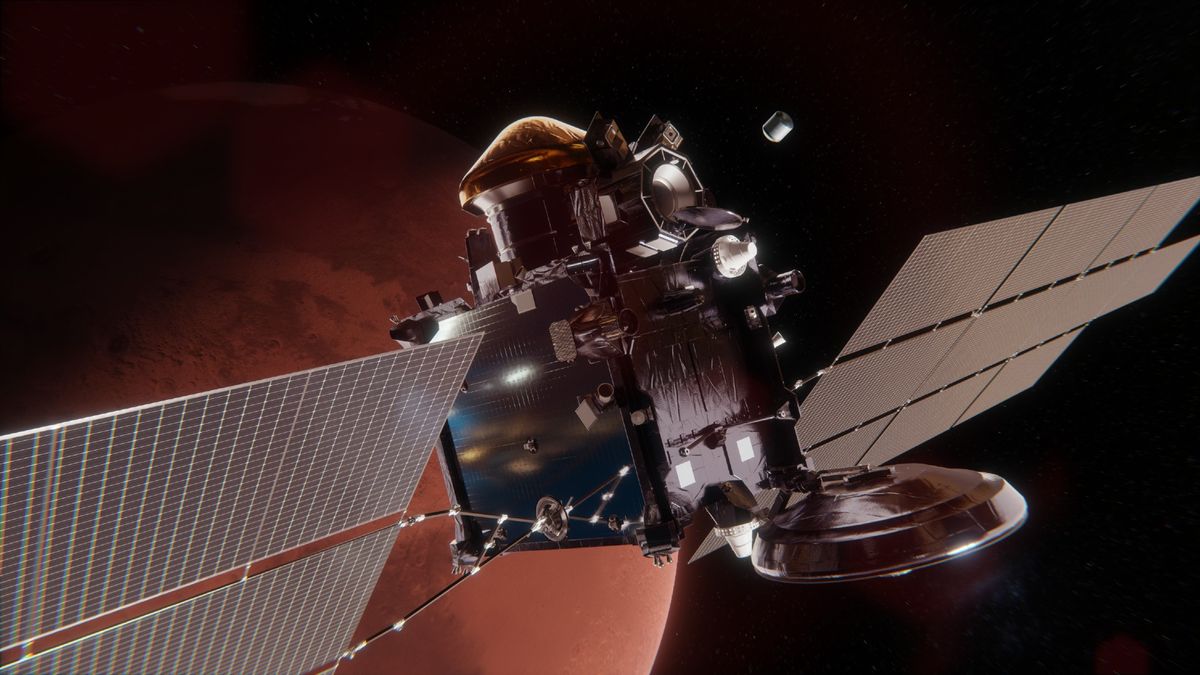While NASA’s portion of the Mars Sample Return mission sits in budgetary limbo, the European Space Agency (ESA) continues to move forward with its piece of the Red Planet sampling puzzle: the Earth Return Orbiter (ERO).
ERO will provide the crucial transport of Mars samples collected by NASA’s Perseverance rover from the Red Planet to Earth. In order to do so, it will rendezvous with the sample in Martian orbit, catch a basketball-sized capsule whizzing around the planet and finally bring that capsule back to Earth.
The spacecraft has just passed its design review, which validated its technical details and moves the project onto manufacturing and testing. “A robust design is the foundation for building, testing and assembling the hardware into a complete spacecraft,” Tiago Loureiro, ERO’s project team leader, said in a statement.
“From a staggering distance of up to several hundred million kilometers, Earth-based teams will choreograph a complex orbital dance around Mars,” said Orson Sutherland, ESA’s Mars program manager.
Though ESA’s ERO program is moving forward, NASA’s side of the mission — which comprises transporting the sample on the Martian surface and using a rocket called the Mars Ascent Vehicle to launch it into Martian orbit — is still undergoing review after its $11 billion budget was deemed too expensive.
As such, it may face numerous design changes in the near future. In fact, NASA has recently commissioned ten studies to reduce the scale (and therefore the cost) of the mission.
But ESA affirms that ERO will be able to adapt to any changes to Mars Sample Return mission. “The configuration of the spacecraft is robust enough to be flexible with the cargo and to help find solutions for a new architecture. ESA and our industrial partners adapted to a new scenario, staying inventive and resourceful while remaining a reliable partner for NASA,” Tiago said. “We have confirmed that the Earth Return Orbiter works for what was planned to do and more, whatever the alternatives are.”

